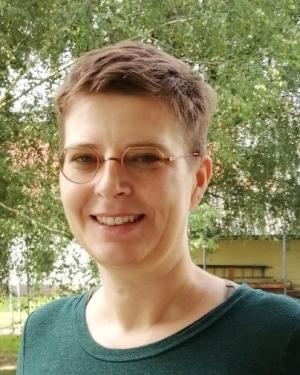Leibetseder, Doris | Austria

Doris Leibetseder is a Visiting Scholar at the ReproSoc (Reproductive Sociology) research group at the University of Cambridge, a Senior Research Fellow at the University of Vienna and Lecturer in Gender Studies at several universities in Austria. Their Marie Skłodowska-Curie Actions fellowship (MSCA, No. 749218, 2017-2019) with the title ‘Towards an Inclusive Common European Framework for Assisted Reproductive Technologies (ART): Queer and Transgender Reproduction in the Age of ART’ took place at the Centre for Gender Research, University of Uppsala, Sweden. Before, Leibetseder was a visiting scholar at UC Berkeley, CSMTS (Center for Science, Technology, Medicine and Society) and formed part of the Beatrice Bain Research Group (Department for Gender and Women’s Studies). Leibetseder has a doctorate in Philosophy with a focus on Gender Studies and a diploma in radiography. Their current research is on: queer and trans reproduction, families and kinship; reproductive justice; ethics; bioethics; assisted reproductive technologies; intersectionalities; queer and trans cultural studies.
Project at IAS-STS: Towards an Inclusive Reproduction in Europe despite COVID-19
Assisted Reproductive Technologies (ARTs) were invented to assist infertile heterosexual couples, but due to changes in biotechnology and shifts in socio-cultural practices, the regulation of access to particular ART procedures in different European states differs greatly and thus gives rise to cross border fertility travel. However, as the COVID-19 pandemic led to drastic national measures, borders were closed and ART treatments were put on hold in many states. The proposed project builds on previous EU funded research, Marie Skłodowska-Curie Action (MSCA) Fellowship ‘QTReproART’.
Both studies depart from the premise that a negative aspect of reproductive technologies is that access to ART is unevenly distributed among different parts of the population. Social groups particularly affected by ART legal and medical frameworks are LGBTIQ people. During COVID-19 challenges and obstacles in reproduction and parenthood seem to have intensified.
Objectives:
- Comparative analysis of diverse sets of ART in 6 European states before and during COVID 19.
- Providing original, empirical and intersectional data on LGBTIQ people’s use, experiences and access to ART during COVID-19. This constitutes an archive of LGBTIQ people’s use and experiences of ART.
- Developing inclusive strategies and guidelines for accessing ART.
Contact: doris [punkt] leibetseder
 gmail [punkt] com
gmail [punkt] com
Selected Publications:
Edited Book: Bodily Interventions and Intimate Labour: Understanding Bioprecarity. Eds Gabriele Griffin and Doris Leibetseder. Manchester: Manchester University Press, 2020. ISBN 978-1-5261-3857-6.
Edited Special Issue: ‘Queer and Trans Reproduction with Assisted Reproductive Technologies (ART), in Europe’, Special Issue, co-edited with Gabriele Griffin, Journal for International Women’s Studies 20/1, 2018. ISSN: 1539-8706.
Articles/Contributions:
‘Reproductive Technologies for Queer and Trans People’ in The Rowman & Littlefield Handbook of Bioethics. Eds Ezio Di Nucci, Ji-Young Lee, Isaac Wagner. Rowman & Littlefield, November 2022.
‘States of Reproduction: The Co-Production of Queer & Trans Parenthood’ 2nd author Gabriele Griffin, Journal of Gender Studies 8 July, 1-16. 2019. DOI: 10.1080/09589236.2019.1636773.
‘Queer and Trans Access to Assisted Reproductive Technologies: A Comparison of Three EU-States, Poland, Spain and Sweden’ Journal for International Women’s Studies 20/1, 2018.
